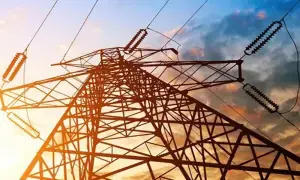Govt increases Rs10 on petrol price amid hike in international market
3 min readThe federal government has increased the price of petrol by Rs10, Finance Minister Ishaq Dar said on Saturday. The new rate would come into effect from April 16.
“Today, at 12am the change is due on petroleum products. The rate of petroleum products has increased in the international market over the past 15 days,” Dar said in a live address on PTV.
The hike in petroleum products was expected today (April 15) as earlier this month the government had decided to keep the prices unchanged.
He added that the government has “tried its best” to lessen the rates as much as possible on the recommendations of the Oil and Gas Regulatory Authority amid the global oil rates and rupee devaluation.
The cash-strapped country has “just” increased Rs10 on the price of petrol, from Rs272 to Rs282. The diesel, which stands at Rs293, and light diesel oil, Rs174.68, prices have been kept unchanged. But the Kerosene oil rate has been raised by Rs5.78 to Rs186.7
Oil prices were up on Friday and secured a fourth straight week of gains after the West’s energy watchdog said global demand will hit a record high this year on the back of a recovery in Chinese consumption, Reuters reported.
The International Energy Agency (IEA) also warned that deep output cuts announced by the Organization of the Petroleum Exporting Countries (OPEC) and other producers led by Russia – a group known as OPEC+ - could exacerbate an oil supply deficit and hurt consumers.
Brent crude futures settled at $86.31 a barrel, rising 22 cents, or 0.3%. West Texas Intermediate crude futures (WTI) settled at $82.52 a barrel, gaining 36 cents, or 0.4%.
Both contracts posted a fourth consecutive week of gains amid easing concerns over a banking crisis that struck last month and the surprise decision last week by OPEC+ to further cut output.
Brent is set to post a 1.5% weekly gain, while WTI was up 2.4% on the week. Four weeks of increases would be the longest such streak since June 2022.
In its monthly report on Friday, the IEA said world oil demand is set to grow by 2 million barrels per day (bpd) in 2023 to a record 101.9 million bpd, driven mostly by stronger consumption in China after the lifting of COVID restrictions there.
Jet fuel demand accounts for 57% of the 2023 gains, it said.
But OPEC on Thursday flagged downside risks to summer oil demand as part of the backdrop for its decision to cut output by a further 1.16 million bpd.
The IEA said the OPEC+ decision could hurt consumers and global economic recovery.
“Consumers confronted by inflated prices for basic necessities will now have to spread their budgets even more thinly,” it said in its monthly oil report. “This augurs badly for the economic recovery and growth.”
The IEA said it expected global oil supply to fall by 400,000 bpd by the end of the year, citing an expected production increase of 1 million bpd from outside of OPEC+ beginning in March versus a 1.4 million bpd decline from the producer bloc.
For the latest news, follow us on Twitter @Aaj_Urdu. We are also on Facebook, Instagram and YouTube.


























Comments are closed on this story.